CONGRATULATIONS! You are probably here because you have already adopted a new kitten or you are planning to adopt a new kitten very soon. Let us be one of the first to say welcome to the joy of being a cat owner. This post will hopefully guide you and teach you it is not always an easy task to be a cat owner but with patience, understanding, and education you and your new addition will have many happy years together. Much like a human child, kittens and cats need attention, care, and protection. Cats, like all pets, will be toddlers their whole life and will always find something to get into. Please do not let that scare you from being a furbaby parent. It is truly a joy to be one.
This post contains affiliate links. We may earn compensation when you click on the links at no additional cost to you.
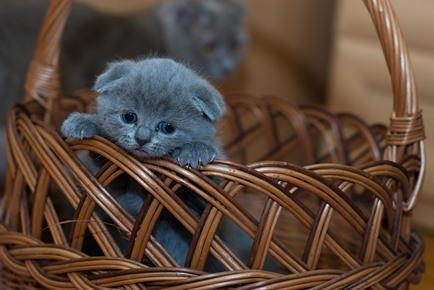
What is the best age for a kitten to be adopted? Separating kittens from their biological moms and siblings when they are 10 -12 weeks old is mostly recommended. If your kitten has been in great care and has had human contact, at 10-12 weeks they should be strong and ready to go to a new home. At about 8 weeks of age, your kitten’s mother will start weaning her litter. She’ll nurse less and less and encourage her babies to become more independent.
Steps you need to do to prepare for your new kitten. Before you introduce Kitty to their new surroundings, safely store items they might chew, swallow, or choke on. Keep tissues, paper towels, toilet paper, pens, pencils, rubber bands, jewelry, balloons, and small items out of their paw’s reach. If you already have other pets, be sure they have seen the veterinarian recently, so they won’t be sharing an infection with their new sibling. We recommend looking around your house as you would if you were 3 inches off the ground with the ability to climb and get into small areas – as you would a crawling or human toddler visiting.
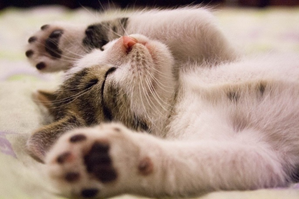
If you are an avid plant lover and/or have any plants around the house you can go to the Animal Poison Control Center website for a list of deadly plants to avoid for your cat. You may also call their 24-hour hotline if you think your pet may have ingested a potentially poisonous substance 1-888-426-4435. We advise you to research this and all mentioned safety precautions before an accident happens and also, to put the above phone # in your phone – just in case.
Other things to mention, be sure not to leave any medication bottles around, especially Tylenol which can be extremely toxic to cats. Close washer and dryer doors. This is one of our biggest fears. Mom checks EVERY TIME before starting the washer or dryer for cats. Close kitchen and bathroom cabinets because household items like bleach, detergent, and antifreeze can be very harmful. Cats can and will learn how to open cabinets so best to put this stuff completely out of your new cat’s reach before they move in or as soon as possible.

If you do have another cat or dog we recommend choosing a secluded room, away from the other furfamily members to bring your new addition first. This just makes it easier for the kitten to adjust to everyone and everything instead of just tossing them into the mix. Your new little one will get the chance to smell and play without interruptions from other 4-legged beings. Don’t forget to make sure their kitty litter is easy to find. Once the cat is comfortable with their surroundings, you can then slowly move their litter to where you have planned for it to go. We say slowly because cats are creatures of habit and if you just up and move the litter then it’s a good chance your kitty will “go” where the pan used to be. To avoid this just move a couple of feet at a time.
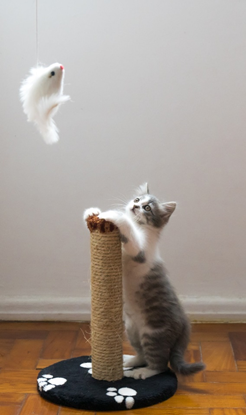
Dangling string, yarn or ribbons may drive cats crazy – the fun, playing crazy, but make sure these fun items do not tangle or choke your kitty. Small, stuffed, animal approved, safe toys, and trackballs make the best play items because they are safe and stimulate exercise. You may have more fun watching your cat play than they have playing, but you’ll also want to observe his/her behavior at rest. Sneak a peek at how he/she moves in and out of their new room. If they dash in fast, they may still need more time to acclimate. If he/she walks in slow, you will know they are ready to explore more of the house.
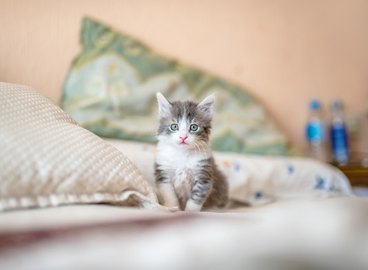
Now let us talk about Veterinary care. This is a very important step and should not be taken lightly. This should be a huge part of your decision making on if you are ready to adopt a new kitten. If you can not or will not take your new baby to the vet, then a kitten might not be for you at this stage in your life. Kittens will need to be dewormed at least once and probably twice. Worms are typically roundworms or pinworms and they are passed to the kitten through the mother’s milk. Your vet can give your kitten a dose of medication to kill these worms when the kitten is 6 weeks old or so. This should be followed up 2 weeks later either by the second dose of medication or a fecal test to ensure that all the worms have been eradicated. Follow your veterinary’s instructions completely. NOTE if you adopt locally at an animal shelter, they usually will have already met these requirements and/or will advise you exactly what you need to do and the timelines as part of your adoption.
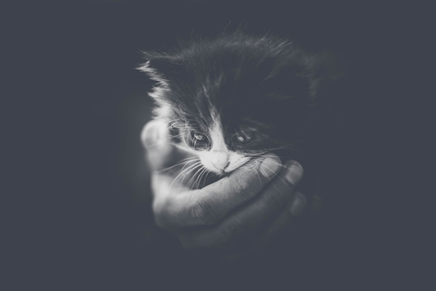
Next on our list of recommended things for your new addition is to spay/neuter your kitten. This is a very important step to be done before your female cat goes into heat. The spay will help prevent UT infections and breast tumors. This also helps stop over animal population in your community and in the shelter. For males, neutering is just as important, as it reduces or eliminates the risk of spraying and marking around your home. They will have less desire to roam, therefore less likely to be injured in fights or auto accidents. The risk of testicular cancer is eliminated and decreases incidences of prostate disease. It can also decrease aggressive behavior.
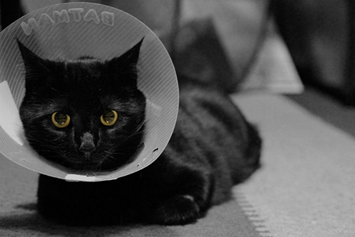
Not to scare you but to make you aware as you may have never heard of some of the dangerous cat diseases. Feline Leukemia and Feline Immunodeficiency Virus are diseases that attack the immune system, much as HIV does in humans. Note: these cat diseases can not be transferred to humans. Normally, the kitten will not get one of these diseases unless the mother has it. If the mother is not available to test, you can have your kitten tested for FeLeuk, which is the most communicable of the two diseases. Your kitty will need shots to prevent diseases, just as children do. The distemper vaccine typically includes protection not only for feline distemper but some upper respiratory viruses. Feline distemper is a serious, often fatal disease that is easily transmitted, so do not delay getting this important vaccination. Your kitten should receive his first distemper shot when he/she is about 8 weeks old. A booster shot is then needed 3 to 4 weeks later. After this, your kitty will need annual boosters.
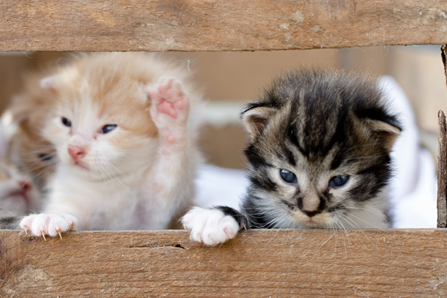
Rabies is another serious, fatal disease that can attack any mammal, including humans. In many locations, you are required by law to have your pet vaccinated for rabies. Your kitty should get his/her first rabies vaccination when he/she is 4 months old. After this, he/she will need a booster one year later. After that he/she will need boosters every 3 years. Follow your veterinary’s instructions completely.
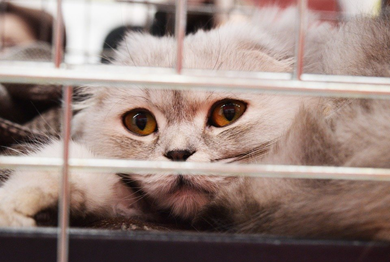
And the last food for thought is microchipping your kitten. This one is not a requirement, but here at Kittystead we highly recommend going through this process. It is not expensive and is a good thing to have if your kitten gets lost. Animal shelters take in 6 to 8 million cats and dogs each year and anywhere from 3 to 4 million of those animals are euthanized. Even more tragic, not all of them are strays. Many euthanized are lost pets that shelters can’t identify and reunite with their owners. If microchipped and your cat gets out and the kids two blocks over fall in love with and take it home when they go to the vet they will scan the cat and your furbaby will be reunited to you. We did not microchip one of our first kitties, Molly and she got out never to be seen again. It’s a terrible thing to go through and would not wish that upon anyone.
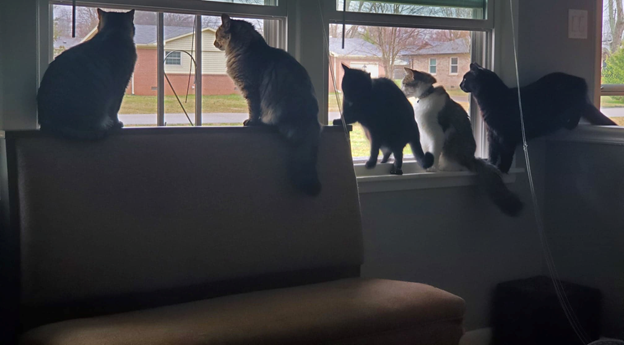
Cats are a great joy to you and the family. We at Kittystead are happy you have decided to adopt. We know your new addition will bring great cheer and wonder to your life.
Don’t forget to sign up for our newsletter for upcoming posts, tips, and so much more. If you have any questions be sure to leave them in the comment section below.
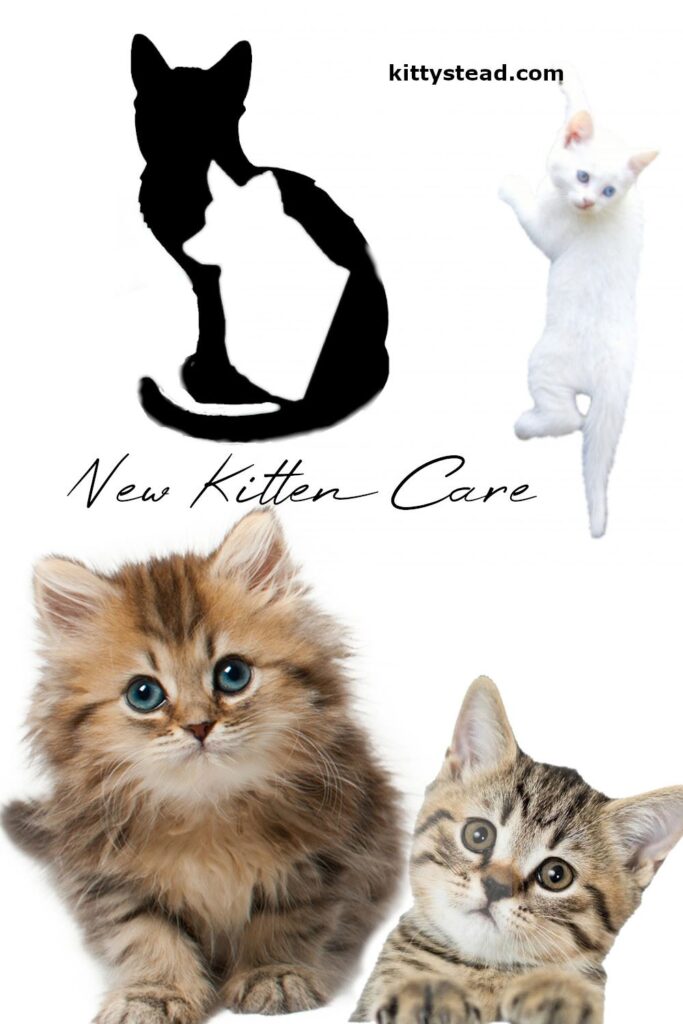

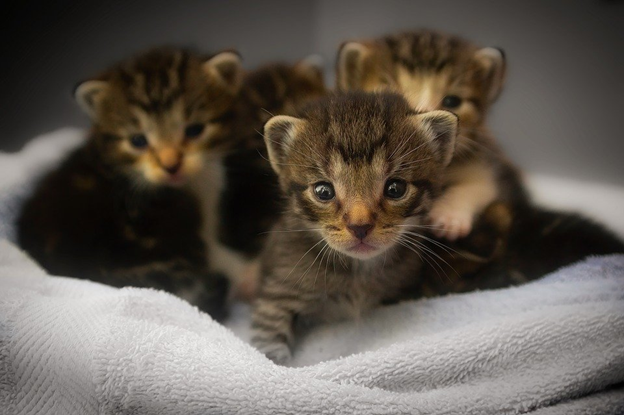





Ahh, the toilet paper. If you’re getting a new kitten, definitely be prepared to lose a roll or two over the course of your first year! Our youngest are over a year and we still put aluminum foil over the roll to stop them from going crazy with it!
Great article! We adopted two kittens, sisters from the same litter, in April! We are in love with them ! I grew up with dogs and cats and I am so happy that now my kids are too! I wish I had had this article in April ! I had to dig around on different site to get all the information you have put here! Excellent!
This is great information for a first time kitty owner! So much to know!
I live in a very pro-kittens kind of community. I see these little tiny kittens running around and I get worried for them:)
As a dog (puppy) mom I had to deal with the paper toilet issue – what is their obsession with it, lol:) Such great tips in this post. Thanks so much for sharing.
This is some great advice for all kittie lovers.
I needed your blog last summer! We brought home a kitten for the first time, and have been learning as we go.